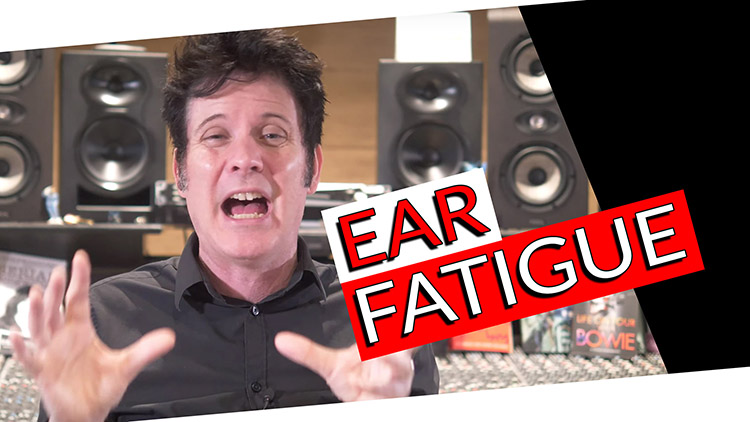We’re back with another episode of FAQ Friday!
Before we get into this week’s questions, I wanted to know if you’ve had a fun week mixing the song “The Gallery- Young & Restless?”
If you haven’t already, you can download the multitracks here and watch the full mix breakdown below.
The Gallery – Young & Restless Mix Breakdown Part 1
The Gallery – Young & Restless Mix Breakdown Part 2
The Gallery – Young & Restless Mix Breakdown Part 3
Alright! Back to this week’s frequently asked questions.
Our featured question of the week is: When working with music full time, how do you manage ear fatigue?
That’s a very interesting question.
The way I manage it is by avoiding it at all costs. I’ve been doing streams inside of the academy where we listen to mixes, critique them and talk about the live with the community. It’s been really wonderful! The thing that works really well with that is that we can share information and talk in real time! My point is that I’m on there for two hours with headphones on so I have to turn the volume down and listen at lower levels and then crank it if necessary.
I try not to put myself in a position where I’m listening loud for any length of time.
The best thing for you to do is to not monitor too loud, too often. You can monitor loud for a few seconds, but don’t just sit there and crack it! haha
When I was at Capitol the other day with Al Schmitt (Watch the full interview here), we went into studio C and listened to some amazing recordings! Steve had a db meter and was listening at 80db when I arrived. When he played it back to me he pushed it a db or two and it was plenty loud enough!
It’s not only the volume that can fatigue you, it’s also what you’re listening to! If you’re listening to electric guitars with tons of crunch on them for long periods of time that can be incredibly fatiguing because it’s all 3k – 5k. The same goes with listening to snare drums for 2 hours- you’ll need to take a lot of time off to get your hearing to recover.
High-Mids are where your ears are the most sensitive. Somewhere between 2k or 3k to about 5k is really sensitive. If you’ve got really aggressive loud speakers in that range you are going to suffer a lot of ear fatigue.
SEE ALSO:
5 Delay Mixing Tricks
Drum Mixing Basics
Mixing: Headphones Vs Monitors
Don’t listen loud for too long, and don’t listen to really aggressive high-mid stuff for too long! That will blow you out super quick!
We cover the following questions during this episode of FAQ Friday!
• When you edit tracks as you did on the toms do you just leave them as is or print them to commit to the editing? 1:04
• When working with music full time, how do you manage ear fatigue? 3:29
• Is it a good idea to use master bus volume automation to control how hard the signal hits the compressor? 6:09
• In this new digital era with everyone listening to their music by streaming on computer speakers, earbuds, cell phones speakers how do we mix and master our music? Does the listener expect our songs to sound good on these devices? What point of reference do we go by to get the right compromising mix? 8:54
• Are all people in the academy doing this (semi) professional? Or are there, just like me, people with 40+ hour (unrelated to music) jobs that do this as a hobby and try to get this hobby to the next level (and maybe earn a few bucks with it in the end)? 13:32
